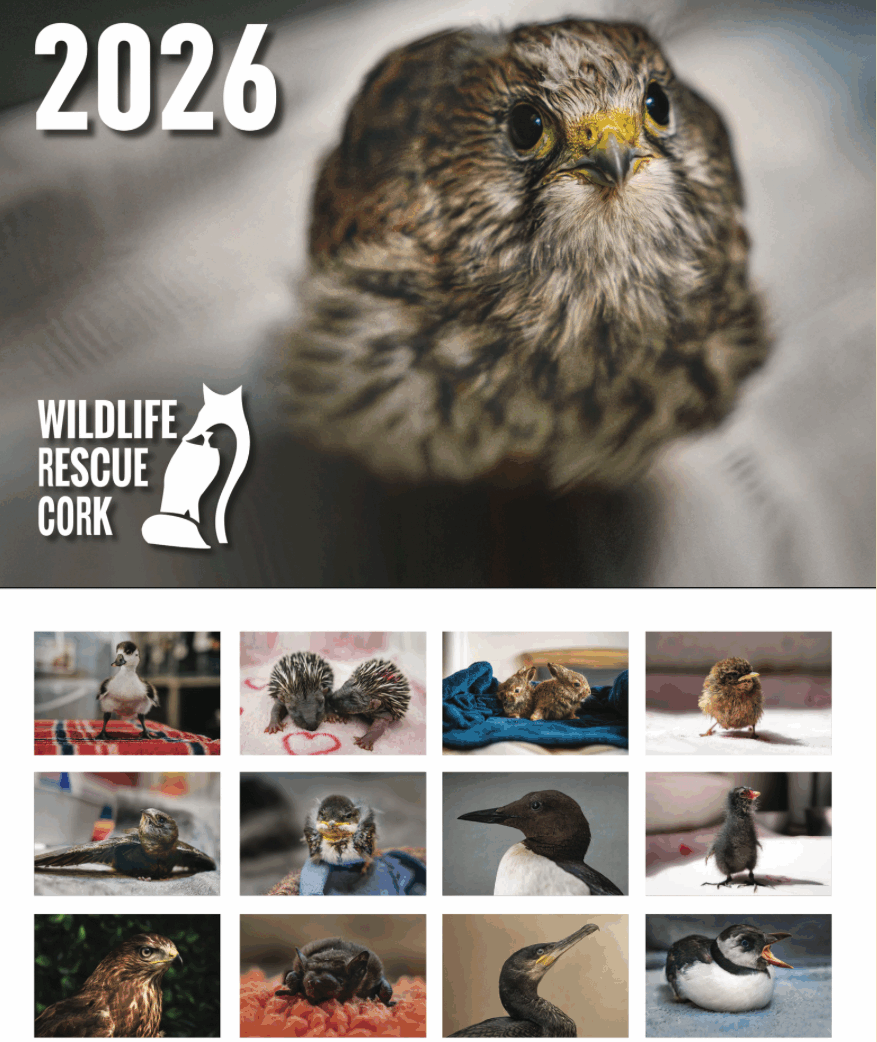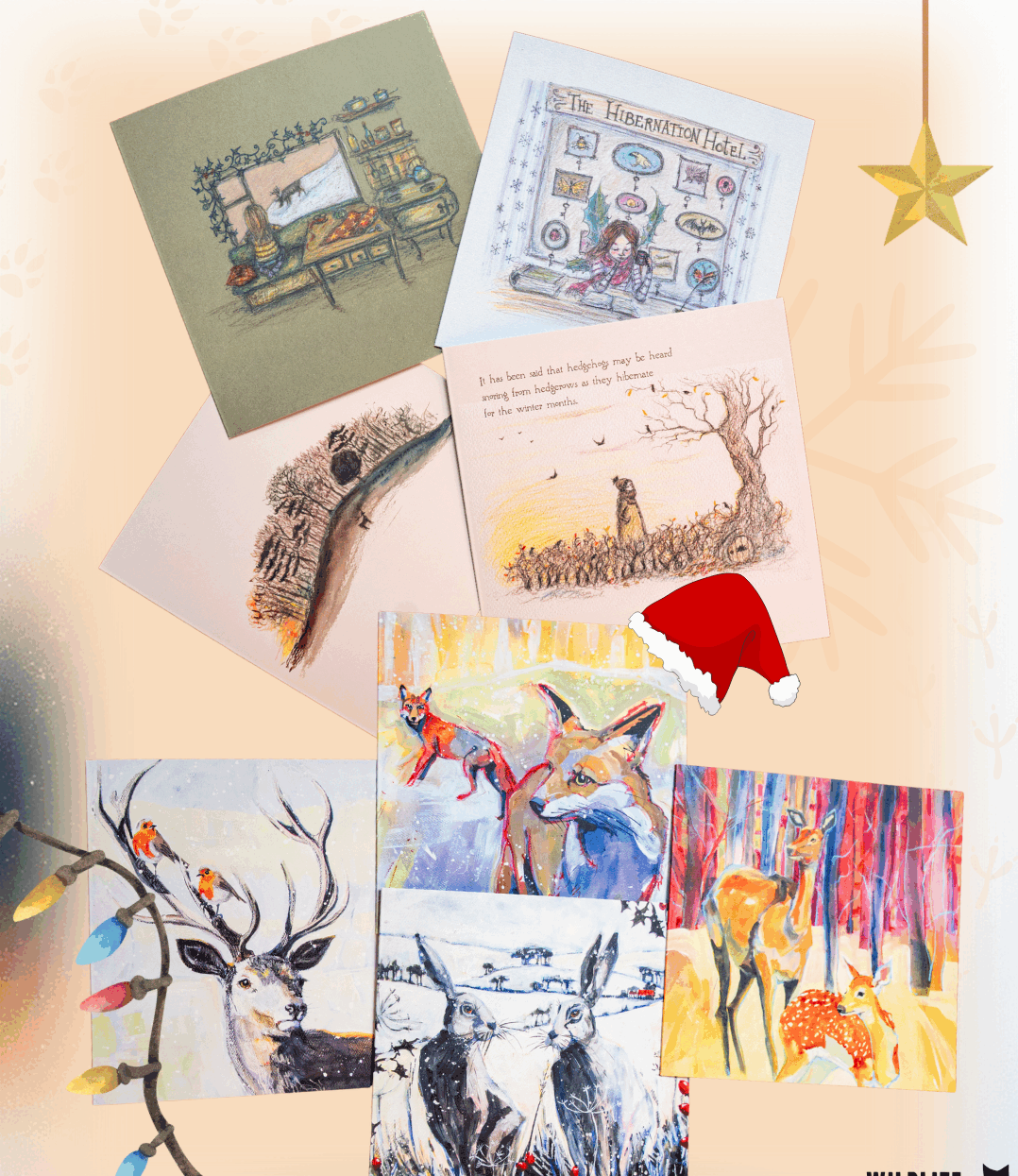New products alert!
This Christmas, you can make a difference for Ireland’s wildlife.
We’re selling our 2026 Wildlife Rescue Calendar and Christmas cards, each helping to fund the rescue and care of local wild animals.
Find out more below.

Calendar 2026
Bring a touch of the wild into your home while supporting the rescue, rehabilitation, and release of Ireland’s precious wildlife. Our 2026 Wildlife Rescue Cork Calendar features twelve stunning photographs of animals who have passed through our care.

Christmas Cards
Pack of four random Christmas Cards. All cards have been created, ordered and packed by volunteers. One pack contains four cards. Two designs from Annabel Langrish and two designs from Baglady designs. Will you collect them all ?
A few numbers in 2024
1200+ Answered
Emails
This is the number of emails we responded to in 2024.
54 Volunteers
involved
This is the number of volunteers we had in 2024.
789
Transports
Made
This is the number of transports we made in 2024.
1039
Animals in
the center
This is the number of animals we had at the center in 2024.
About us
Wildlife Rescue Cork (WRC) is a registered charity (RCN: 20205803).
WRC was set up in 2017 “to rescue, rehabilitate injured or orphaned native wildlife in Cork and surrounding counties”, with the sole purpose of releasing them back into the wild once successfully recovered. All our actions are geared towards these goals. We are a small, but increasing team 100% run by volunteers.
A few things we’re great at
Responding
Our team of volunteers work very hard on responding as soon as possible to your requests in the friendliest manner.
Rescuing
Our volunteers are trained to rescue animals in the most effective and respectful way.
Rehabilitating
We are very dedicated to the rehabilitation of animals and make sure they are recovered and readied to get back to the wild.
Releasing
We choose the best time and location to release our animals in care. Where possible the animals are released back to where they were found.
Tracking
We are part of a ringing project with our NPWS Ranger to allow some of our rehabilitated birds to be recognised in the wild if spotted again.
Training
Each volunteer receives training on the basics of rescuing an animal and can progress to onsite training overtime.
How it works
The Profile of a Rescue
Ever wondered what happens when you contact us about a distressed animal ? Here are the steps taken when you make contact.
Send an email
You send us an email via the contact form on the website.
Chat with one of us
One of our volunteers will get in touch with you to collect more details.
Transport
We will liaise with you to see if you can help transport the animal to us to get it help as soon as possible. We may be able to get a volunteer to help transport as needed.
Initial check-up
The animal arrives either to a vet or to our rescue for a first check-up and then will be taken care of by our experienced volunteers.

What to do if
You found an animal ?
If you want to know more about what to do when finding an injured animal in the wild, feel free to read our pages on each animal to have an idea on how to react. In any doubt, always contact us.
Join us! It will only take a minute
Portfolio
Here are some photos of animals that came into our care. Feel free to follow us on Instagram for some more @wildliferescuecork !
rescue@wildliferescuecork.com
Location
Whitechurch, Co. Cork
Donate
PayPal, Transfer, GoFundMe
Socials
Follow us on social medias!